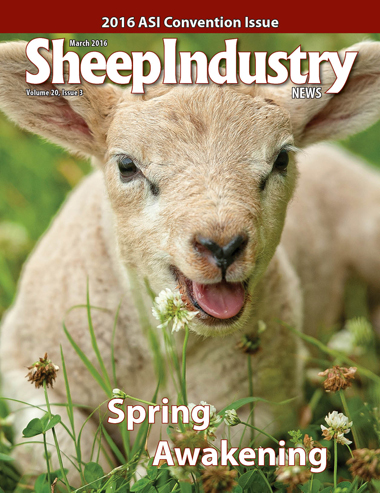KYLE PARTAIN
Sheep Industry News Editor
Tim Turner, DVM, might possibly be the most qualified man in American to speak on the new veterinary feed directive that will go into affect in January 2017.
As a veterinarian, sheep producer and feed mill operator, he will get an up close look at VFD from every possible angle. He offered some simple advice to those worried about the implementation of the new government program, “Keep a proper attitude.”
Speaking before ASI’s Animal Health Committee in Scottsdale, Turner said there’s little doubt that many producers (whether it’s sheep, cattle, pigs or poultry) have used antibiotics as a crutch in the past. VFD will make such use a lot more difficult, as producers will need to involve a veterinarian in the process once the new rules take affect.
No longer will producers be able to get such products mixed with feed directly from the feed mills. Veterinarians will act as a middle man, assessing the situation and then sending prescriptions to the feed mills on behalf of producers.
One requirement of the new law is that producers must have a veterinary client relationship with the vet who handles the prescription. Vets who write prescriptions should be familiar with the animals in question, Turner said.
While costs of certain antibiotics aren’t expected to increase dramatically under the program, there will be additional costs of involving a veterinarian in the process. Feed mills will also be producing custom blends for clients based on the prescriptions. The extra work involved in the process will show up in at least a minimal added cost somewhere along the way.
The changes provide producers with an incentive to monitor their livestock and be mindful of nutritional alternatives to antibiotics.
“Animal health is everyone’s primary concern,” Turner said. “If you’re proactive about things, you won’t be affected as much by the changes.”
Cindy Wolf, DVM, from Minnesota said the U.S. Food and Drug Administration is open to some changes in the policy when it comes to sheep. To that end, members of the committee might be called upon to explain the needs of the industry to federal agencies down the road.


